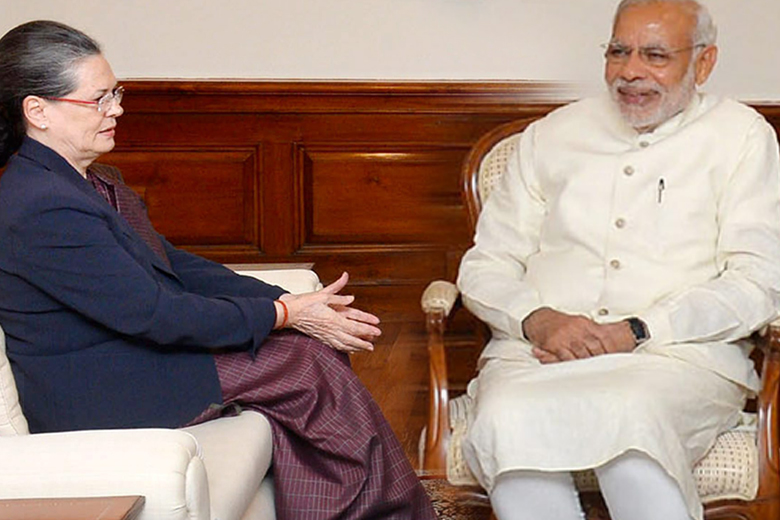Sonia Gandhi writes to PM Narendra Modi on women’s reservation bill
 NEW DELHI : In a letter to Prime Minister Narendra Modi, Congress president Sonia Gandhi reminded him of the landmark Women’s Reservation Bill and asked him to pass the legislation, which she said has been languishing in Lok Sabha “for one reason or another”. Gandhi assured him of her party’s support to the legislation, which she said would be a significant step forward in the empowerment of women.
NEW DELHI : In a letter to Prime Minister Narendra Modi, Congress president Sonia Gandhi reminded him of the landmark Women’s Reservation Bill and asked him to pass the legislation, which she said has been languishing in Lok Sabha “for one reason or another”. Gandhi assured him of her party’s support to the legislation, which she said would be a significant step forward in the empowerment of women.
Sonia wrote, “I am writing to request you to take advantage of your majority in the Lok Sabha to now get the Women’s Reservation Bill passed in the Lower House as well.” “The Congress party has always and will continue to support this legislation, which will be a significant step forward in the empowerment of women,” she wrote.
The Bill has already been passed by the Rajya Sabha on March 9, 2010 when the Congress-led United Progressive Alliance (UPA) was in power. “Since then it has languished in the Lok Sabha for one reason or another,” Mrs Gandhi says in her letter, vowing that the Congress “has always and will continue to support the legislation”.
The Women’s Reservation Bill envisages 33 per cent reservation for women in the Lok Sabha and all state legislative assemblies. Sonia reminded Modi that the Bill has already been passed by the Rajya Sabha on March 9, 2010 when the Congress-led United Progressive Alliance (UPA) was in power.
The PM’s party and its allies have an easy majority in the Lok Sabha. Yesterday, when asked Bhupendra Yadav, the BJP’s leader in the Rajya Sabha, if the government would present new focus on the women’s bill, he replied in the negative. Women politicians have pointed out that male MPs are against the proposal. Women hold only about 10 per cent of the seats in the two houses of Parliament combined. According to the Inter-Parliamentary Union (IPU), that’s half the global average of 21.4 per cent.
The proposal has the potential to become one of the most empowering laws for women in India, activists say. Gender equality in Parliament would empower women in general, they say. A stronger women’s voice at the top would have a trickle-down effect, leading to the development of policies and laws that would help women at the grassroots level fight abuse, discrimination and inequality.
Despite nearly two decades of protests, rallies, demonstrations and hunger strikes by the women’s rights movement in India for more seats in the legislature, male lawmakers have stubbornly blocked the current bill, fearing – activists say – that it threatens their own political power.

